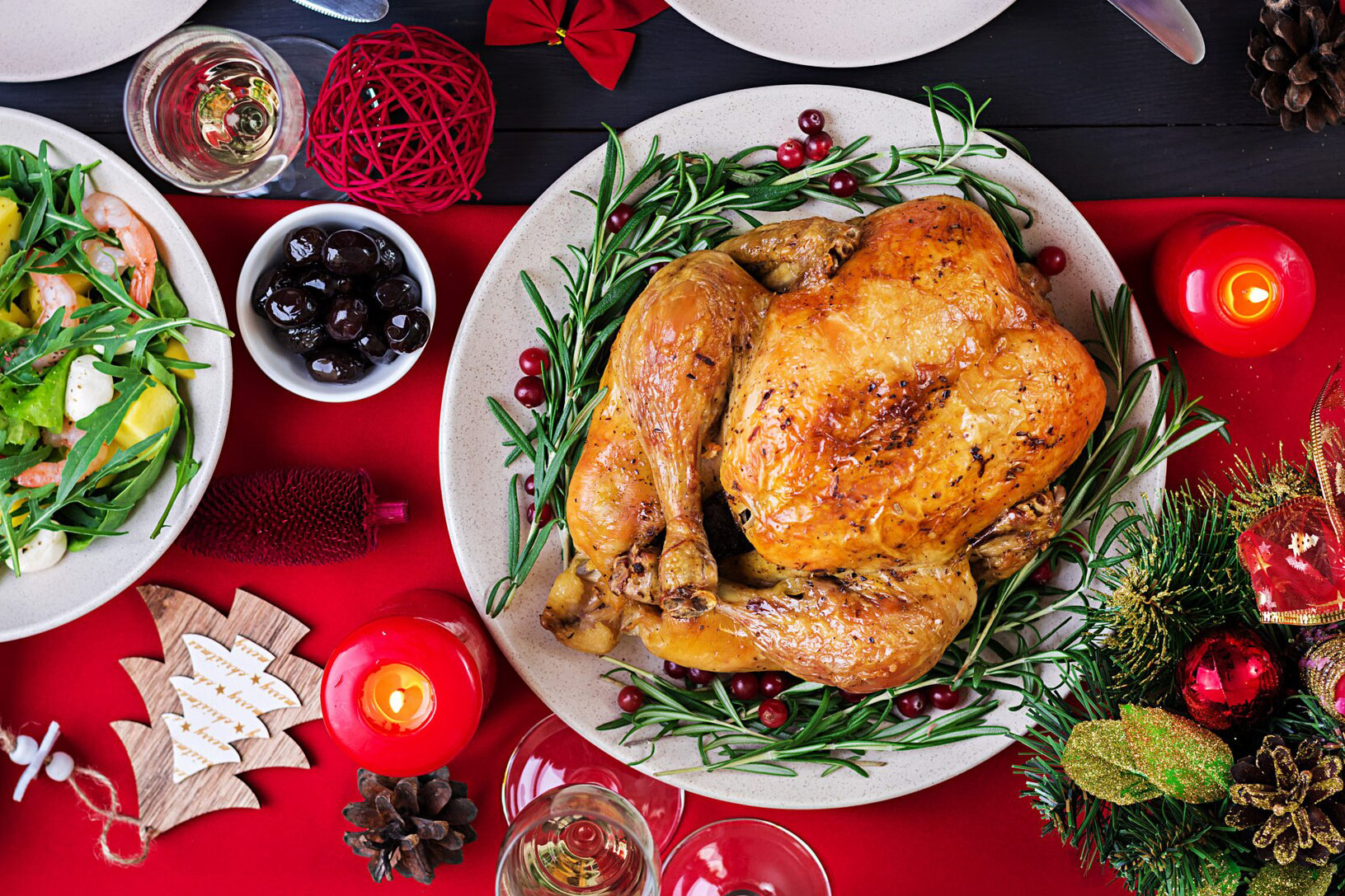Christmas food safety
Feasting with family is all part of the holiday celebrations. But many homes are visited by uninvited guests you may be unaware of – food poisoning bacteria! Here’s our top tips on how to cook up a storm this Christmas while keeping your food and family safe.

Buying your bird
If you’re buying a fresh bird, buy it as late as possible before you plan to cook it. Bring it home quickly and store it in the fridge. Cook it no later than two days after buying it.
If you buy a frozen bird, put it in your freezer until you’re ready to defrost it.
Remember: The Food Standards Agency says do not wash raw turkey before cooking. Washing raw meat spreads germs onto your hands, clothes, utensils and worktops. Thorough cooking will kill any bacteria present.
Defrosting
The safest way to defrost a bird is in the fridge. Place the bird on the bottom shelf and make sure it cannot drip onto any other foods. Allow for around 10 to12 hours per kg or 5 hours per lb.
If defrosting the bird in a cool room, then allow three to four hours per kg or two hours per lb.
Tip: The bird is defrosted and ready for cooking when the body is soft, the legs can be moved easily and there are no ice crystals inside. Keep it in the fridge if you’re not going to cook it immediately.
Cooking
Raw meat may contain bacteria such as salmonella, which can cause severe illness. Adequate cooking kills these bacteria but cooking a turkey, chicken, goose or game can be risky if it isn’t done properly.
Tip: If you’re using a meat thermometer or a temperature probe, check that the internal temperature of the meat reaches 75°C for 30 seconds or 80°C for 6 seconds. The temperature should be taken at the thickest portion of the food. In a whole bird, this is the area between the leg and the breast.